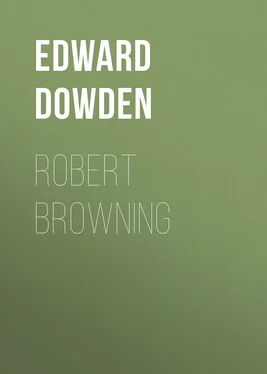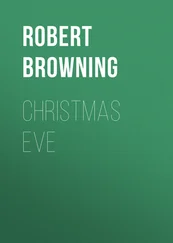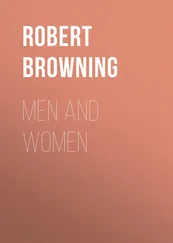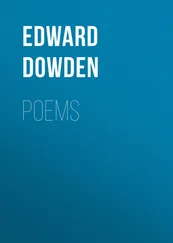Edward Dowden - Robert Browning
Здесь есть возможность читать онлайн «Edward Dowden - Robert Browning» — ознакомительный отрывок электронной книги совершенно бесплатно, а после прочтения отрывка купить полную версию. В некоторых случаях можно слушать аудио, скачать через торрент в формате fb2 и присутствует краткое содержание. Жанр: Биографии и Мемуары, Поэзия, foreign_antique, foreign_prose, foreign_poetry, на английском языке. Описание произведения, (предисловие) а так же отзывы посетителей доступны на портале библиотеки ЛибКат.
- Название:Robert Browning
- Автор:
- Жанр:
- Год:неизвестен
- ISBN:нет данных
- Рейтинг книги:5 / 5. Голосов: 1
-
Избранное:Добавить в избранное
- Отзывы:
-
Ваша оценка:
- 100
- 1
- 2
- 3
- 4
- 5
Robert Browning: краткое содержание, описание и аннотация
Предлагаем к чтению аннотацию, описание, краткое содержание или предисловие (зависит от того, что написал сам автор книги «Robert Browning»). Если вы не нашли необходимую информацию о книге — напишите в комментариях, мы постараемся отыскать её.
Robert Browning — читать онлайн ознакомительный отрывок
Ниже представлен текст книги, разбитый по страницам. Система сохранения места последней прочитанной страницы, позволяет с удобством читать онлайн бесплатно книгу «Robert Browning», без необходимости каждый раз заново искать на чём Вы остановились. Поставьте закладку, и сможете в любой момент перейти на страницу, на которой закончили чтение.
Интервал:
Закладка:
Robert Browning, writes Mrs Orr, "was a handsome, vigorous, fearless child, and soon developed an unresting activity and a fiery temper." His energy of mind made him a swift learner. After the elementary lessons in reading had been achieved, he was prepared for the neighbouring school of the Rev. Thomas Ready by Mr Ready's sisters. Having entered this school as a day-boarder, he remained under Mr Ready's care until the year 1826. To facile companionship with his school-fellows Browning was not prone, but he found among them one or two abiding friends. As for the rest, though he was no winner of school prizes, he seems to have acquired a certain intellectual mastery over his comrades; some of them were formed into a dramatic troupe for the performance of his boyish plays. Perhaps the better part of his education was that of his hours at home. He read widely in his father's excellent library. The favourite books of his earliest years, Croxall's Fables and Quarles's Emblems , were succeeded by others which made a substantial contribution to his mind. A list given by Mrs Orr includes Walpole's Letters , Junius, Voltaire, and Mandeville's Fable of the Bees . The first book he ever bought with his own money was Macpherson's Ossian , and the first composition he committed to paper, written years before his purchase of the volume, was an imitation of Ossian, "whom," says Browning, "I had not read, but conceived, through two or three scraps in other books." His early feeling for art was nourished by visits to the Dulwich Gallery, to which he obtained an entrance when far under the age permitted by the rules; there he would sit for an hour before some chosen picture, and in later years he could recall the "wonderful Rembrandt of Jacob's vision," the Giorgione music-lesson, the "triumphant Murillo pictures," "such a Watteau," and "all the Poussins." 8 8 Letters of R.B. and E.B.B ., i. 528, 529; and (for Ossian), ii. 469.
Among modern poets Byron at first with him held the chief place. Boyish verses, written under the Byronic influence, were gathered into a group when the writer was but twelve years old; a title— Incondita —was found, and Browning's parents had serious intentions of publishing the manuscript. Happily the manuscript, declined by publishers, was in the end destroyed, and editors have been saved from the necessity of printing or reprinting these crudities of a great poet's childhood. Their only merit, he assured Mr Gosse, lay in "their mellifluous smoothness." It was an event of capital importance in the history of Browning's mind when—probably in his thirteenth year—he lighted, in exploring a book-stall, upon a copy of one of the pirated editions of Shelley's Queen Mab and other poems. Through the zeal of his good mother on the boy's behalf the authorised editions were at a later time obtained; and she added to her gift the works, as far as they were then in print, of Keats. 9 9 Browning in a letter to Mr Wise says that this happened "some time before 1830 (or even earlier). The books," he says, "were obtained in the regular way , from Hunt and Clarke." Mr Gosse in Personalia gives a different account, pp. 23, 24.
If ever there was a period of Sturm und Drang in Browning's life, it was during the years in which he caught from Shelley the spirit of the higher revolt. A new faith and unfaith came to him, radiant with colour, luminous with the brightness of dawn, and uttered with a new, keen, penetrating melody. The outward conduct of his life was obedient in all essentials to the good laws of use and wont. He pursued his various studies—literature, languages, music—with energy. He was diligent—during a brief attendance—in Professor Long's Greek class at University College—"a bright, handsome youth," as a classfellow has described him, "with long black hair falling over his shoulders." He sang, he danced, he rode, he boxed, he fenced. But below all these activities a restless inward current ran. For a time he became, as Mrs Orr has put it, "a professing atheist and a practising vegetarian;" and together with the growing-pains of intellectual independence there was present a certain aggressive egoism. He loved his home, yet he chafed against some of its social limitations. Of friendships outside his home we read of that with Alfred Domett, the 'Waring' of his poems, afterwards the poet and the statesman of New Zealand; with Joseph Arnould, afterwards the Indian judge; and with his cousin James Silverthorne, the 'Charles' of Browning's pathetic poem May and Death . We hear also of a tender boyish sentiment, settling into friendship, for Miss Eliza Flower, his senior by nine years, for whose musical compositions he had an ardent admiration: "I put it apart from all other English music I know," he wrote as late as 1845, "and fully believe in it as the music we all waited for." With her sister Sarah, two years younger than Eliza, best known by her married name Sarah Flower Adams and remembered by her hymn, written in 1840, "Nearer my God to Thee," he discussed as a boy his religious difficulties, and in proposing his own doubts drew forth her latent scepticism as to the orthodox beliefs. "It was in answering Robert Browning;" she wrote, "that my mind refused to bring forward argument, turned recreant, and sided with the enemy." Something of this period of Browning's Sturm und Drang can be divined through the ideas and imagery of Pauline. 10 10 The quotations from letters above are taken from J.C. Hadden's article "Some Friends of Browning" in Macmillan's Magazine , Jan. 1898.
The finer influence of Shelley upon the genius of Browning in his youth proceeded from something quite other than those doctrinaire abstractions—the formulas of revolution—which Shelley had caught up from Godwin and certain French thinkers of the eighteenth century. Browning's spirit from first to last was one which was constantly reaching upward through the attainments of earth to something that lay beyond them. A climbing spirit, such as his, seemed to perceive in Shelley a spirit that not only climbed but soared. He could in those early days have addressed to Shelley words written later, and suggested, one cannot but believe, by his feeling for his wife:
You must be just before, in fine,
See and make me see, for your part,
New depths of the Divine!
Shelley opened up for his young and enthusiastic follower new vistas leading towards the infinite, towards the unattainable Best. Browning's only piece of prose criticism—apart from scattered comments in his letters—is the essay introductory to that volume of letters erroneously ascribed to Shelley, which was published when Browning was but little under forty years old. It expresses his mature feelings and convictions; and these doubtless contain within them as their germ the experience of his youth. 11 11 Later in life Browning came to think unfavourably of Shelley as a man and to esteem him less highly as a poet. He wrote in December 1885 to Dr Furnivall: "For myself I painfully contrast my notions of Shelley the man and Shelley, well, even the poet , with what they were sixty years ago." He declined Dr Furnivall's invitation to him to accept the presidency of "The Shelley Society."
Shelley appears to him as a poet gifted with a fuller perception of nature and man than that of the average mind, and striving to embody the thing he perceives "not so much with reference to the many below, as to the One above him, the supreme Intelligence which apprehends all things in their absolute truth—an ultimate view ever aspired to, if but partially attained, by the poet's own soul." If Shelley was deficient in some subordinate powers which support and reinforce the purely poetic gifts, he possessed the highest faculty and in this he lived and had his being. "His spirit invariably saw and spoke from the last height to which it had attained." What was "his noblest and predominating characteristic" as a poet? Browning attempts to give it definition: it was "his simultaneous perception of Power and Love in the absolute, and of Beauty and Good in the concrete, while he throws, from his poet's station between both, swifter, subtler, and more numerous films for the connexion of each with each, than have been thrown by any modern artificer of whom I have knowledge." In other words it was Shelley's special function to fling an aerial bridge from reality, as we commonly understand that word, to the higher reality which we name the ideal; to set up an aerial ladder—not less solid because it is aerial—upon the earth, whose top reached to heaven. Such was Browning's conception of Shelley, and it pays little regard either to atheistic theory or vegetarian practice.
Интервал:
Закладка:
Похожие книги на «Robert Browning»
Представляем Вашему вниманию похожие книги на «Robert Browning» списком для выбора. Мы отобрали схожую по названию и смыслу литературу в надежде предоставить читателям больше вариантов отыскать новые, интересные, ещё непрочитанные произведения.
Обсуждение, отзывы о книге «Robert Browning» и просто собственные мнения читателей. Оставьте ваши комментарии, напишите, что Вы думаете о произведении, его смысле или главных героях. Укажите что конкретно понравилось, а что нет, и почему Вы так считаете.












